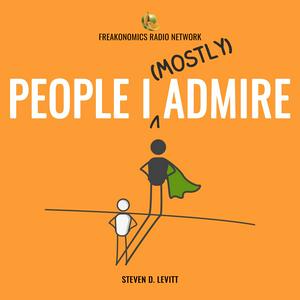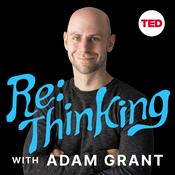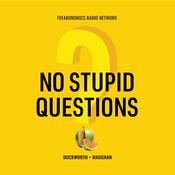216 episodes
- She showed up late and confused to her first silent retreat, but Caverly Morgan eventually trained for eight years in silence at a Zen monastery. Now her mindfulness-education program Peace in Schools is part of the high-school curriculum in Portland, Ore. Steve Levitt finds out what daily life is like in a silent monastery, why teens find it easier than adults to learn meditation, and what happy children can teach their parents. This episode originally aired on November 13th, 2020.
Hosted by Simplecast, an AdsWizz company. See pcm.adswizz.com for information about our collection and use of personal data for advertising. 6. Nathan Myhrvold: “I Am Interested in Lots of Things, and That's Actually a Bad Strategy”
2026/2/07 | 47 mins.He graduated high school at 14, and by 23 had several graduate degrees and was a research assistant with Stephen Hawking. He became the first chief technology officer at Microsoft (without having ever studied computer science) and then started a company focused on big questions — like how to provide the world with clean energy and how to optimize pizza-baking. Find out what makes Nathan Myhrvold’s fertile mind tick, and which of his many ideas Steve Levitt likes the most. This episode originally aired on October 30th, 2020.
Hosted by Simplecast, an AdsWizz company. See pcm.adswizz.com for information about our collection and use of personal data for advertising.- She was the sixteenth employee at Google — a company once based in her garage — and now she's the C.E.O. of its best-known subsidiary, YouTube. But despite being one of the most powerful people in the tech industry, few outside of Silicon Valley know the name Susan Wojcicki. Levitt talks with her about the early days of Google, how her background in economics shapes the company's products, and why YouTube's success has created a range of unforeseen and serious issues. This episode originally aired on October 16th, 2020.
Hosted by Simplecast, an AdsWizz company. See pcm.adswizz.com for information about our collection and use of personal data for advertising. - It was only in his late twenties that America’s favorite brainiac began to seriously embrace his love of trivia. Now he holds the “Greatest of All Time” title on Jeopardy! Steve Levitt digs into how he trained for the show, what it means to have a "geographic memory," and why we lie to our children. This episode originally aired on October 2nd, 2020.
Hosted by Simplecast, an AdsWizz company. See pcm.adswizz.com for information about our collection and use of personal data for advertising. - The dean of Yale’s School of Management grew up in a small village in Guyana. During his unlikely journey, he has researched video-gaming habits, communicable disease, and why so many African-Americans haven’t had the kind of success he’s had. Steve Levitt talks to Charles about his parents’ encouragement, his love of Sports Illustrated, and how he talks to his American-born kids about the complicated history of Blackness in America. This episode originally aired on September 18th, 2020.
Hosted by Simplecast, an AdsWizz company. See pcm.adswizz.com for information about our collection and use of personal data for advertising.
More Society & Culture podcasts
Trending Society & Culture podcasts
About People I (Mostly) Admire
Freakonomics co-author Steve Levitt tracks down other high achievers for surprising, revealing conversations about their lives and obsessions. Join Levitt as he goes through the most interesting midlife crisis you’ve ever heard — and learn how a renegade sheriff is transforming Chicago's jail, how a biologist is finding the secrets of evolution in the Arctic tundra, and how a trivia champion memorized 160,000 flashcards.
To get every show in the Freakonomics Radio Network without ads and a monthly bonus episode of Freakonomics Radio, start a free trial for SiriusXM Podcasts+ on Apple Podcasts or by visiting siriusxm.com/podcastsplus.
Podcast websiteListen to People I (Mostly) Admire, The Shawn Ryan Show and many other podcasts from around the world with the radio.net app

Get the free radio.net app
- Stations and podcasts to bookmark
- Stream via Wi-Fi or Bluetooth
- Supports Carplay & Android Auto
- Many other app features
Get the free radio.net app
- Stations and podcasts to bookmark
- Stream via Wi-Fi or Bluetooth
- Supports Carplay & Android Auto
- Many other app features


People I (Mostly) Admire
Scan code,
download the app,
start listening.
download the app,
start listening.






























